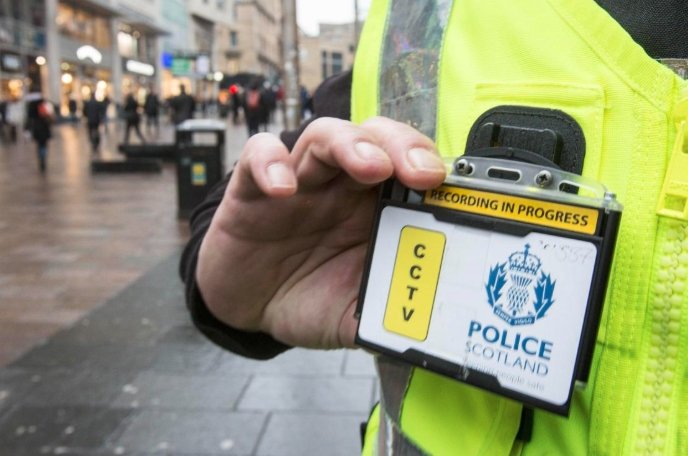Police Scotland has officially begun deploying body-worn video cameras across the country, starting with officers in Tayside this week. The move marks a significant step in the force’s commitment to enhancing accountability, transparency, and public confidence in law enforcement.
These new cameras, supplied by Motorola, are expected to provide crucial evidence in criminal cases while also safeguarding officers from unfounded complaints. The rollout follows extensive trials and consultations, with law enforcement officials highlighting the benefits seen in other UK police forces.
The technology records interactions between officers and the public, offering an unbiased record of events.
“This is a game-changer for policing in Scotland,” said Chief Superintendent Phil Davison. “Body-worn video has been shown to reduce confrontations, improve evidence gathering, and increase public trust. We are pleased to begin this rollout in Tayside and will continue deploying the cameras to other regions in the coming months.”
The introduction of body-worn video has been met with general approval from the public and police unions, although some civil liberties groups have raised concerns about data privacy and the potential for misuse.

NHS Trusts Turn to Solar to Cut Costs and Emissions
In a separate major development, NHS trusts across England are making a significant shift toward renewable energy, installing solar panels on hospitals and healthcare facilities. The initiative is backed by funding from Great British Energy, a government-supported initiative aiming to reduce reliance on fossil fuels and cut energy bills for essential services.
Hospitals are among the highest energy consumers in the public sector, requiring constant power for life-saving equipment, heating, and lighting. The shift to solar energy is expected to drive down costs while freeing up funds for patient care.
“This is an essential step in modernizing our healthcare system,” said Health Minister Caroline Thomas. “By investing in solar energy, we’re not just cutting costs—we’re making the NHS more sustainable for the future.”
Key Benefits of the Solar Investment
- Lower energy bills – Hospitals can redirect savings into critical frontline services.
- Reduced carbon footprint – A move toward cleaner energy supports the UK’s net-zero goals.
- Energy independence – Less reliance on external energy providers mitigates risks associated with market fluctuations.
Initial installations have already begun in several NHS trusts, with more sites set to follow throughout the year. Analysts predict that these investments could save the NHS tens of millions of pounds annually while significantly lowering carbon emissions.
A Broader Trend Toward Tech-Driven Public Services
Both the Police Scotland body camera rollout and the NHS solar investment reflect a broader shift toward integrating technology into public services. Digital transformation is playing a crucial role in increasing efficiency, transparency, and sustainability across the UK’s emergency and healthcare sectors.
The body-worn camera rollout follows similar initiatives in England and Wales, where the technology has been widely adopted in recent years. Studies indicate that body cameras reduce incidents of violence against officers and provide clearer evidence in legal proceedings.
Similarly, the move toward solar energy aligns with wider government initiatives aimed at reducing public sector emissions. The NHS, as one of the UK’s largest energy consumers, has been under increasing pressure to adopt greener solutions.
The Road Ahead
While both initiatives have been widely welcomed, challenges remain. For Police Scotland, ensuring officers are adequately trained to use the cameras effectively will be key. Additionally, there are ongoing discussions about policies governing the storage and use of footage, particularly in sensitive cases.
For the NHS, the transition to solar energy requires careful planning to integrate new systems without disrupting patient care. However, with government backing and clear long-term benefits, the investment in solar is expected to expand further in the coming years.
These developments underscore a growing recognition of how technology can enhance public services. Whether through increased transparency in policing or cost-saving measures in healthcare, the integration of new technology is reshaping how key institutions operate across the UK.


















